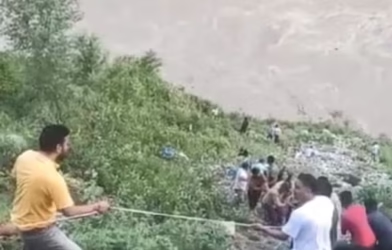Our elders have a saying, to wit, that once hunger is removed from poverty, what is left is manageable. Another way of saying that is: Once hunger enters a stomach, nothing else can find its way there! Little wonder, then, that the Jamaican reggae superstar, Bob Nestar Marley, crooned that a hungry man is an angry man. Nigerians in their millions, thus, must be angry as we speak because there is hunger in the land. This must have been what informed President Bola Ahmed Tinubu to declare, last week, a state of emergency over food shortages and rising cost of foodstuffs. As if arising from that or a convergence of opinion, leaders of the agitation for Yoruba Nation released a plan of action for food security in Yoruba land in particular and the country at large. War theorists identify food security as the first form of security a nation desirous of being described as a great nation must have. Food, therefore, is an important weapon in war. We saw that in the Nigerian civil war of 1967 – 1970. We are also seeing it in the ongoing Russia/Ukraine war. In the siege of Samaria in the bible, hunger was the weapon employed by the enemy in its effort to bring Samaria on its knees. So, a country cannot describe itself as being great if it lacks food security. Therefore, as the acclaimed giant of Africa, Nigeria cannot but be a giant with the feet of clay if it cannot feed itself. Scripture says in the multitude of counsel, there is safety; so we shall be running through the suggestions offered by the Yoruba Nation, especially as it is steeped in the highly successful agricultural and rural development programme of the late sage, Chief Obafemi Awolowo.
Titled “ILETO CONCEPT: RE-INVENTING THE AWOLOWO ERA AGRICULTURE IN YORUBA NATION”, snippets of it run thus: “Agriculture was the mainstay of the economy of Western Region because the AWOLOWO administration focused on its potentials. These potentials are still there today and they can be brought back to drive the economy of YORUBA NATION. All we need is to focus on agriculture and the potentials will be realized. ILETO as a rebranding of the AWOLOWO era FARM SETTLEMENT can provide solutions to the several problems of YORUBA NATION today. ILETO can solve the problems of youth unemployment, food and Community security. It can give us good foreign exchange and reduce the parity between the dollar and the naira.
ILETO is the small community of old where everyone knows the other, a small community of farmers. The ILETO farm community is of youths of farming age engaged in various farming activities from crop to livestock to simple marketing of inputs, commodities, etc. The Fulani herdsmen invasion of farm lands in Yoruba Nation has spurred a new thinking on farming activities in the Yoruba nation. In the last two years many communities have reported the invasion of their farmlands and entire community, kidnapping and raping as well. These Fulani herdsmen activities have devastated many communities, dislocated their ways of life and have led to the abandonment of not just their farmlands but also the entire community. The brutality, killings and raping did not spare any group of people; it affects men, women and children, leading to mass displacement and refugees. One significant consequence of these brutality and mindlessness is its effect on food security, first in the immediate community but will spread to other major cities of the nation. Ordinarily, the nation was far from food security but the current activities of the Fulani herdsmen have brought to the fore the fragile food situation attendant on the sacking of farming communities in the Yoruba nation. In the circumstance, therefore, in addition to threat to food security there is imminent threat to life and property occasioned by the murderous Fulani herdsmen activities. It is imperative, therefore, to develop an alternate approach to farming that may also protect the farmers from the murderous adventures of Fulani in the nation.
This proposal set out to develop and define an alternative to the current farming system that has the potential to address food security in the nation while providing some level of self protection from the criminal marauding Fulani herdsmen. An ILETO of 25 to 30 young men and women (ages 20 to 30) farmers is proposed. At least one ILETO will be sited around a major urban town in the Yoruba Nation. An ILETO must have a minimum of one hundred and fifty hectares (150 ha of land (MINI ILETO) or 300 ha (STANDARD ILETO) that is contiguous. It is estimated that 5 ha or 10 ha will be available for each participant for agricultural activities and an additional 10 ha available for a settlement where residential accommodation will be sited. Each participant will own 5 ha (MINI ILETO) or 10 ha (STANDARD ILETO) that will be devoted to agricultural practices ranging from crop production to livestock husbandry. A combination of crop and animal production on a 5 ha or 10 ha of land should be able to sustain a modest family if actively cultivated. Also, it is expected that even at current level of urbanization major towns in the Yoruba nation should be able to provide 150 ha or 300 ha of contiguous farm land for this novel scheme for MINI or STANDARD ILETO respectively, to meet the imperative of food production demand and community security. Each settlement shall be known as ILETO, the historic name of small Yoruba farm settlements which may choose to give itself the name of a feature that is important in its area or important personality; and shall consist of farmers. The choice of 30 as minimum is to ensure that the Ileto shall be strong enough to protect itself. A new farming community with the ability to provide security for its people and its produce is being proposed”.
Space constraint will not let all run the full gamut of the proposal on ILETO but those charged with the implementation of the food emergency declared by the president can reach out for the proposal and digest it. It seeks to address food insecurity, engage our unemployed youths, and help diversify the economy to earn more foreign exchange. I must add that the states and local governments must lead this food emergency from the frontline rather than see it as a Federal Government project per se. In the South-west especially, it is unfortunate that while decades of military rule killed Awo’s laudable agricultural and rural development programmes, successive civilian administrations have done nothing to revive them. The time has come to begin to hold the feet of our state governors and local government chairmen to the fire, especially in the Southwest.
turnpot@gmail.com 0807 552 5533
FEEDBACK
RE: TINUBU: Time o listen to ASUU
Good piece, sir, however, it ignores the fact that Nigeria is a federation with education on the concurrent list that involves the participation and cooperation of both federal and state governments in particular. My observation is that our focus is much more on the federal government than the state governments, most of which are so laid back that they do virtually nothing where concurrent policy issues are concerned. Pray, what roles should state governments play under the Students loans Act? Are the requirements for student loan under the Act applicable at the state level? Does the scheme apply to only federal education institutions?, etc, etc. When I look at how most state governments frustrate the minimum wage Act, I shudder at the crises the Students Loan Act may cause when it becomes operational. Thanks for your usual activism in raising the bar of public opinion moulding! – Dipo Onabanjo.
Good piece sir but you missed a lot of points. I’m the National Secretary of CONUA so you can know from which perspective I am making my comments. Many of us in the universities see things differently from your exposition. Who is the owner of the universities? Who has the right to dictate the pace of governance in the universities? What are the functions of the unions? ASUU has mixed everything up to the extent that the union has taken over the functions of university councils. How can a union embark on strike while demanding for funding? This should be the duty of the councils appointed by the government to oversee the universities. ASUU left member’s welfare to pursue a goal that is clearly beyond its mandate. Is this not what we call a meddlesome interloper? What is the position of the trade union Act on strikes? Does ASUU, a group of intellectuals abide by laws on strike? CONUA and NAMDA are testimonies to the rot that ASUU has brought to our universities and we are determined to do things differently. Asking us to go home is like asking the Israelites to return to Egypt. We have seen enough shenanigans of AAUU and enough is enough. We cannot continue to join hands with those who don’t care if University education in Nigeria is destroyed. For any government to work with ASUU successfully, the government needs the labour law not emotion to deal with the situation. – Oripeloye Henri.
Nice piece! I hope the new administration does the needful in line with your practical propositions. Our universities are in dire need of assistance for urgent rejuvenation. A lot of ground has been lost. Thank you always for your incisive analysis of matters of public interest. – Abiodun Yacoob.












Comments are closed